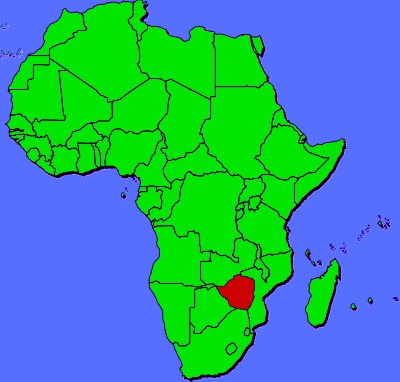
Circle the area on this map

A. Harare is Zimbabwe's capital and largest city with an estimated population of 1.6 million people. When first asked for comment about Cecil, the nation's acting information minister asked, “What lion?”
B. Britain once ruled Zambia and three of its neighbor states. Cecil was being monitored by Britain's Oxford University as part of a study into lion conservation.
D. For most Zimbabweans the lion's name is more associated with the British imperialist diamond digger Cecil John Rhodes, serving as a reminder that the country once bore the name Rhodesia.
C. Zimbabwe – the former Rhodesia - borders South Africa to the south, Botswana to the west, Zambia to the northwest, and Mozambique to the east. Rhodesia's white minority government gave up power in 1979 after a 15-year guerrilla war with black nationalist forces. South Africa's government ended its segregationist apartheid rule in the 1990s.